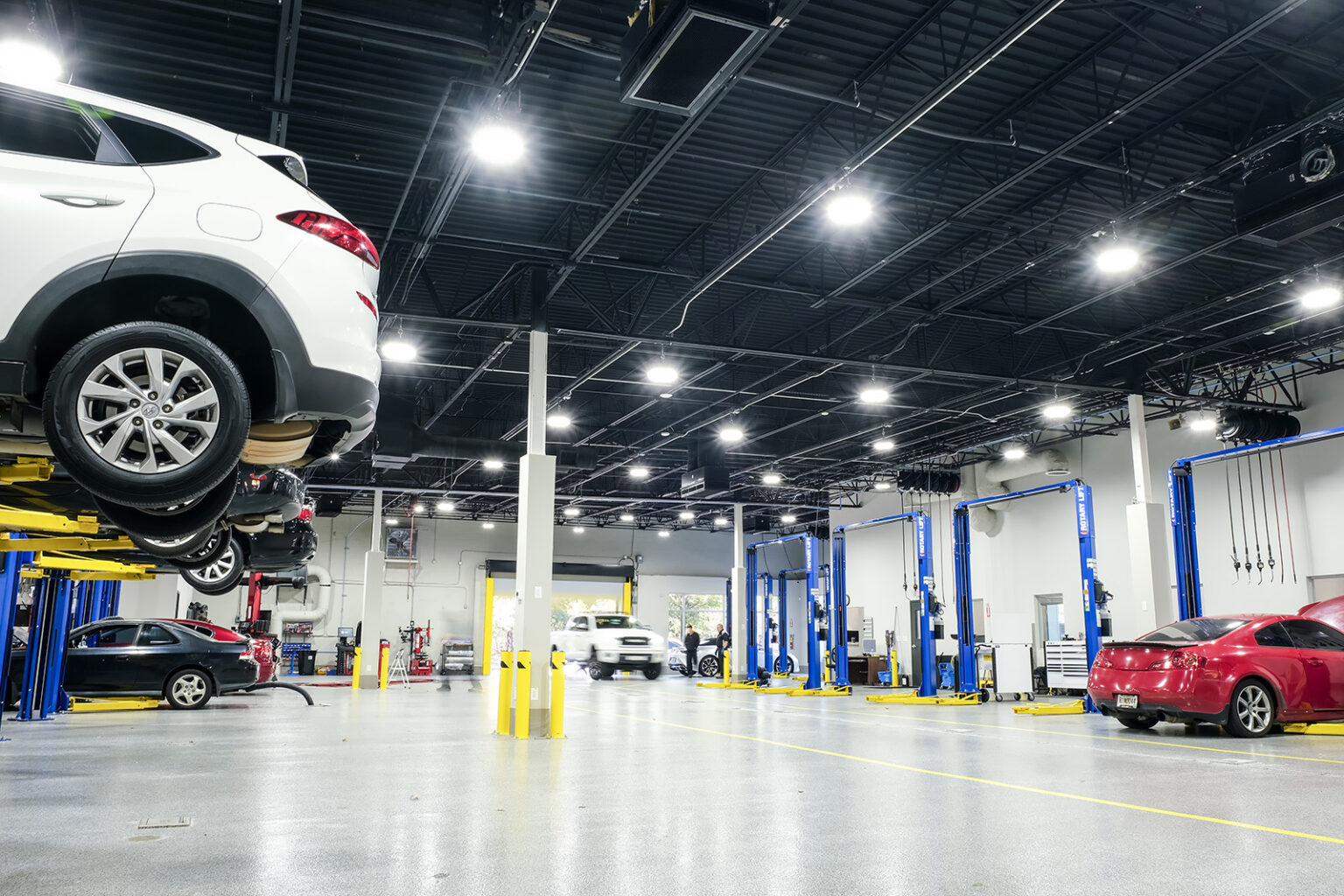All Categories
Featured
Your vehicle's engine is a complex system that depends on many interconnected components to operate effectively. One of the most important components that ensures whatever runs efficiently is the timing belt. Though usually overlooked, the timing belt plays a vital function in keeping your engine integrated and operating at peak efficiency. Ignoring its maintenance or substitute can lead to serious, expensive damage to your engine. In this short article, we'll discover the significance of timing belt substitute and why it's important to your engine's durability.
What Is a Timing Belt and Exactly How Does It Work? The timing belt is a rubber or reinforced composite belt that links the crankshaft to the camshaft in your engine. These two parts must run in sync for the engine's valves to open and close at the appropriate times throughout the combustion cycle. The timing belt regulates this synchronization, making sure that the pistons and valves do not collide.
![]()
As your engine runs, the timing belt continually relocates to maintain these components straightened. In time, the belt goes through wear and tear from engine, rubbing, and warm vibrations. If it breaks or comes to be loose, the crankshaft and camshaft will certainly no longer be integrated, creating engine misfires, loss of power, or, in the worst case, severe engine damages.
Why Timing Belt Replacement Is Essential. Prevents Serious Engine Damages: If the timing belt breaks while the engine is running, the pistons can clash with the valves, triggering bent shutoffs, harmed pistons, or perhaps a cracked engine block. This type of damage frequently needs expensive and comprehensive repair work or a whole engine substitute. Changing the timing belt prior to it stops working is a straightforward and economical way to stay clear of such devastating effects.
![]()
Makes Sure Smooth Engine Operation: A well-maintained timing belt helps maintain your engine running efficiently by keeping the appropriate synchronization between the crankshaft and camshaft. When the timing belt is used out or stretched, the timing of the engine's shutoffs might be off, creating engine misfires, harsh idling, or delaying. Replacing the timing belt at the recommended period ensures that the engine runs as it was made to, enhancing performance and effectiveness.
Conserves You Money: Although replacing the timing belt might appear like a considerable ahead of time cost, it's even more affordable than the price of repairing or replacing a harmed engine. The labor included in changing the timing belt is much less expensive than repairing engine elements that are harmed due to a damaged belt. Routine timing belt substitute can conserve you thousands of dollars in the lengthy run by protecting against engine failure and expensive fixings.
Protects Against Unforeseen Break Downs: If your timing belt breaks suddenly while you're driving, it can leave you stranded and need costly towing. In the worst cases, it can create a full engine failing that provides your auto unusable. By changing the timing belt according to the maker's guidelines, you minimize the risk of sudden breakdowns and ensure your automobile continues to be reputable throughout daily driving and lengthy trips.
When Should You Change Your Timing Belt? The timing belt does not last for life, and its substitute timeline can vary depending on the make and design of your automobile. Many producers recommend changing the timing belt every 60,000 to 100,000 miles. It's important to consult your car's proprietor's manual for details guidelines, as some engines might require earlier or later on replacements.
If you're not sure concerning the problem of your timing belt, indications that it could need changing consist of unusual engine noise (such as ticking or slapping sounds), difficulty starting the engine, or bad engine efficiency. A professional auto mechanic can evaluate the timing belt for deterioration and replace it if essential.
Final thought. The timing belt is a crucial part of your car's engine, and its appropriate maintenance can conserve you from pricey fixings and engine damages. Regularly changing the timing belt at the producer's recommended periods aids make certain smooth engine operation, stays clear of unanticipated breakdowns, and ultimately extends the life of your engine. Do not ignore this critical upkeep job-- by staying on top of timing belt replacement, you're purchasing the long-lasting health and wellness of your vehicle.
What Is a Timing Belt and Exactly How Does It Work? The timing belt is a rubber or reinforced composite belt that links the crankshaft to the camshaft in your engine. These two parts must run in sync for the engine's valves to open and close at the appropriate times throughout the combustion cycle. The timing belt regulates this synchronization, making sure that the pistons and valves do not collide.

As your engine runs, the timing belt continually relocates to maintain these components straightened. In time, the belt goes through wear and tear from engine, rubbing, and warm vibrations. If it breaks or comes to be loose, the crankshaft and camshaft will certainly no longer be integrated, creating engine misfires, loss of power, or, in the worst case, severe engine damages.
Why Timing Belt Replacement Is Essential. Prevents Serious Engine Damages: If the timing belt breaks while the engine is running, the pistons can clash with the valves, triggering bent shutoffs, harmed pistons, or perhaps a cracked engine block. This type of damage frequently needs expensive and comprehensive repair work or a whole engine substitute. Changing the timing belt prior to it stops working is a straightforward and economical way to stay clear of such devastating effects.

Makes Sure Smooth Engine Operation: A well-maintained timing belt helps maintain your engine running efficiently by keeping the appropriate synchronization between the crankshaft and camshaft. When the timing belt is used out or stretched, the timing of the engine's shutoffs might be off, creating engine misfires, harsh idling, or delaying. Replacing the timing belt at the recommended period ensures that the engine runs as it was made to, enhancing performance and effectiveness.
Conserves You Money: Although replacing the timing belt might appear like a considerable ahead of time cost, it's even more affordable than the price of repairing or replacing a harmed engine. The labor included in changing the timing belt is much less expensive than repairing engine elements that are harmed due to a damaged belt. Routine timing belt substitute can conserve you thousands of dollars in the lengthy run by protecting against engine failure and expensive fixings.
Protects Against Unforeseen Break Downs: If your timing belt breaks suddenly while you're driving, it can leave you stranded and need costly towing. In the worst cases, it can create a full engine failing that provides your auto unusable. By changing the timing belt according to the maker's guidelines, you minimize the risk of sudden breakdowns and ensure your automobile continues to be reputable throughout daily driving and lengthy trips.
When Should You Change Your Timing Belt? The timing belt does not last for life, and its substitute timeline can vary depending on the make and design of your automobile. Many producers recommend changing the timing belt every 60,000 to 100,000 miles. It's important to consult your car's proprietor's manual for details guidelines, as some engines might require earlier or later on replacements.
If you're not sure concerning the problem of your timing belt, indications that it could need changing consist of unusual engine noise (such as ticking or slapping sounds), difficulty starting the engine, or bad engine efficiency. A professional auto mechanic can evaluate the timing belt for deterioration and replace it if essential.
Final thought. The timing belt is a crucial part of your car's engine, and its appropriate maintenance can conserve you from pricey fixings and engine damages. Regularly changing the timing belt at the producer's recommended periods aids make certain smooth engine operation, stays clear of unanticipated breakdowns, and ultimately extends the life of your engine. Do not ignore this critical upkeep job-- by staying on top of timing belt replacement, you're purchasing the long-lasting health and wellness of your vehicle.
Latest Posts
Explore Special Auto Repair Offers in Chicago at Montclare Auto Repair
Published May 28, 25
1 min read
Discover the Premier Auto Repair Deals in Montclare, Chicago
Published May 27, 25
1 min read
Check Out Top Vehicle Maintenance Solutions at Montclare Auto Repair – Quality Service Today
Published May 26, 25
1 min read
More
Latest Posts
Explore Special Auto Repair Offers in Chicago at Montclare Auto Repair
Published May 28, 25
1 min read
Discover the Premier Auto Repair Deals in Montclare, Chicago
Published May 27, 25
1 min read
Check Out Top Vehicle Maintenance Solutions at Montclare Auto Repair – Quality Service Today
Published May 26, 25
1 min read